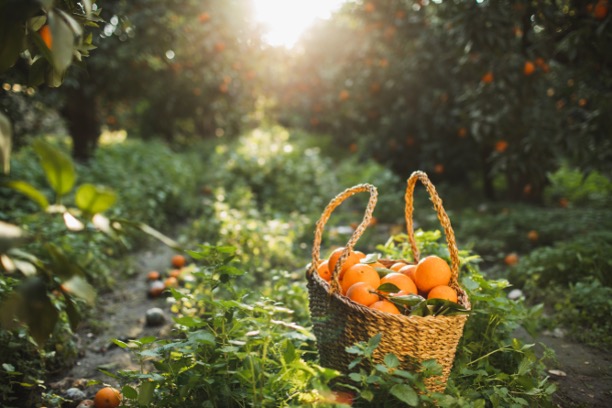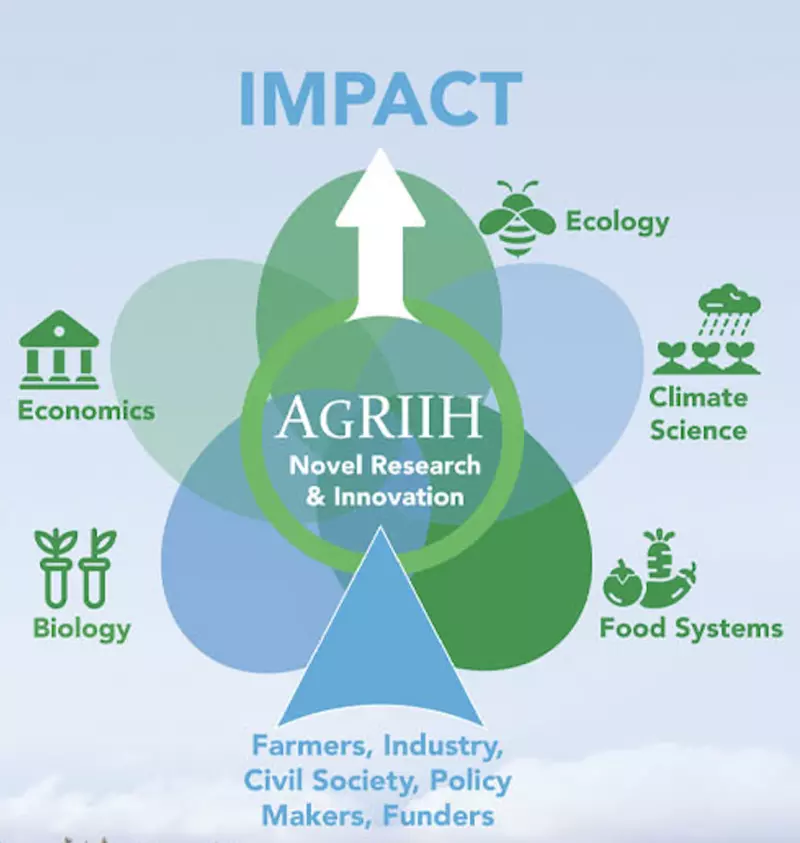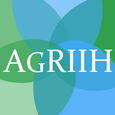A Report on Agricultural Resilience Research Landscape
AGRIIH’s Proposition: What We Add to the Landscape
AGRIIH commissioned consultancy firm, Red Kite, to conduct a research landscape analysis. Their research involved extensive interviews and landscape analysis across the UK, Europe, and the Global South. They consulted universities, research institutes, farmer organisations, policymakers, funders, and agribusiness leaders. Several key themes emerged:
1. Resilience Is the Right Focus
Red Kite found broad consensus that agricultural resilience is recognised as an urgent, enduring and long-term imperative. Stakeholders across sectors highlighted the growing volatility in agriculture’s operating environment. Resilience provides a powerful organising principle for aligning funding, research, investment, and innovation.
AGRIIH will use resilience as our core lens, embedding this theme across disciplines—from plant science and behavioural economics to systems modelling and policy analysis.
“Instability is going to increase, shocks are going to get worse—and we need to get ready for that.” -- anonymous interviewee
2. A Systems Approach Is Essential
Red Kite’s research highlighted that agricultural resilience isn’t just a scientific or technical challenge - it is a systemic issue and emerges from interactions between natural, technical, economic, and social systems, touching on diverse topics including supply chains, farmer incentives, policy design, biodiversity, behavioural change and many more. Resilience cannot be addressed in silos—it requires systemic perspectives and integrated responses.
Oxford brings strong systems thinking capabilities across disciplines. AGRIIH will focus on bridging researchers from different fields and identifying cross-cutting work streams that help address the complexity of agricultural resilience. Rather than working on every part of the system, we aim to create the connections that enable more integrated, impactful research. One area underemphasised in the landscape is the role of ecosystem function as a foundational component of agricultural resilience. AGRIIH will make this explicit, positioning ecological integrity not only as an environmental outcome, but as a central pillar of resilient production systems, and as a source of resilience innovation.
“We need to instil systems thinking, because currently much agricultural research in the UK is very silo-based, not helped by lack of awareness withing Government of the broader complex system.” -- anonymous interviewee
3. The Innovation Gap Is Structural
While the UK produces world-class research, Red Kite’s interviews with businesses and research users identified persistent challenges in translating science and innovation into impact. These include:
- Fragmented research ecosystems
- A lack of engagement with stakeholders throughout the research process
- Misalignment between research agendas and user needs
- Underinvestment in communication, commercialisation, and integration
AGRIIH will help close this gap by working with stakeholders from the outset—identifying problems, co-creating solutions, and enabling pathways for real-world uptake. We will engage key sector stakeholders, including farmers and practitioner groups, industry, NGOs and the public sector. AGRIIH will support participatory processes to ensure research responds to users’ priorities and constraints from the start, building trust in, and engagement with, the research process, and developing productive relationships with research users.
4. Interdisciplinarity Is Necessary to Create Holistic Solutions
Red Kite’s interviews confirmed that agricultural resilience demands knowledge from across disciplines to solve complex challenges in agriculture, but while the value of interdisciplinary collaboration is widely recognised, it remains difficult to achieve in practice—due to differences in language, priorities, and working cultures.
AGRIIH is designed to cultivate interdisciplinary work by bringing researchers together early in the process to identify shared challenges and opportunities. We do this through dedicated workshops, informal convening, and structured dialogue that helps researchers connect across disciplines. Our aim is to create the space and momentum for integrated, collaborative initiatives to emerge.

“You don’t need to be an expert in the whole system—but you do need to understand there are links.” -- anonymous interviewee
The Red Kite team identified a particular gap in the integration of economics and business research with other agriculture-related research areas, as well as being a priority research area for stakeholders, that could help bridge the gap between innovation and uptake. Oxford’s strengths in economics, business, and innovation position AGRIIH to lead work that connects resilience research with these enabling conditions.
Access the report here
Access the 4-pager AGRIIH Explainer here
AGRIIH’s Proposition: What We Add to the Landscape
The Hub is not to replicate existing agricultural research centres, but to connect Systems Expertise, amplify Convening Power, and accelerate Strategic Partnerships. AGRIIH will:
- Apply systems thinking to reveal leverage points and trade-offs across complex systems
- Leverage and integrate Oxford’s core research strengths including biology, food systems, ecology, climate science, and economics
- Enable collaborations with industry and civil society grounded in trust, mutual understanding, and shared purpose
- Act as a gateway to Oxford’s research for external stakeholders seeking expertise and partnership
- Harness Oxford’s global networks and profile, as well as its experience in scaling innovations, including policy frameworks and spinouts, to drive impact.

“Oxford could play a lead role in defining the levers to effect lasting change in UK or global agricultural systems.” -- anonymous interviewee
AGRIIH will build on existing networks including the Oxford Martin School Future of Food programme, to drive impact that resonates across sectors and borders.
Looking Ahead
The path to resilient agriculture is complex, and urgent. Addressing it requires integrated approaches that cross disciplinary and institutional boundaries—and engage the people and systems to shape real-world outcomes. But through partnerships, inclusive dialogue, and integrated research, we can make progress. AGRIIH aims to help lead this transformation—connecting knowledge with action, and people with purpose.
Through AGRIIH, Oxford will contribute to this global challenge by generating practical insight, fostering innovation, and supporting transitions to more adaptive and inclusive agriculture. We welcome interest from collaborators, research users, and funders who share this ambition.



